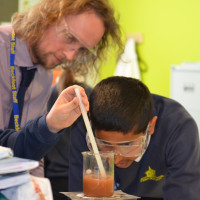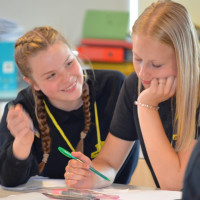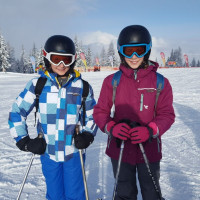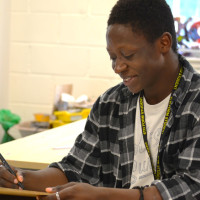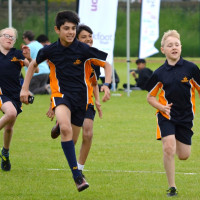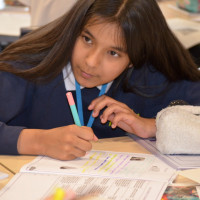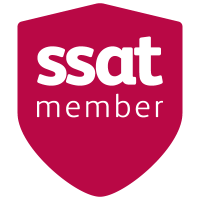Physics
Download our Physics prospectus here.
By studying Science at Beckfoot, students will learn about the way the world around them works and develop essential skills for future study and for life. By looking at phenomena involving the largest objects in the Universe down to those too small to see with the naked eye, we will create a sense of awe, wonder and natural curiosity. Students will leave us having become more employable, able to keep themselves safe and with the cultural capital to engage with the Science they encounter in the future. We intend to provide all our students with a broad and balanced Science curriculum.
Find out more about Physics at Beckfoot Sixth Form by watching the video below.
Useful Downloads
Physics FAQs
1. Do I need to study A Level Maths to take A Level Physics?
It is not a requirement to study A-level maths, although it does help.
2. Are there required practicals?
There are 6 required practicals to complete in Y12 and 6 more to complete in Y13. These are written up in a lab book. At the end of the course you will be awarded a pass or fail for your practical endorsement based on your performance in these practicals. You will also have the opportunity to complete many more practicals during the course.
3. What are the entry requirements?
- Grade 6 in GCSE Physics and either Chemistry or Biology, or Grade 6-6 in GCSE Combined Science.
- Grade 7 in GCSE Mathematics or Grade 6 if also studying A Level Maths
4. What topics will I study?
In Y12 the topics studied are: quantum and particle physics, waves, materials, electricity and mechanics.
In Y13 the topics studied are: further mechanics, gravitational fields, electric fields, magnetic fields, capacitors, nuclear physics, thermal physics and an option module (i.e. astrophysics, medical physics, engineering physics).
5. How is the course examined?
There is no coursework. There are three 2 hour exams at the end of Y13.
Paper 1: Y12 content and periodic motion. 34 % of A-level.
60 marks of short and long answer questions and 25 multiple choice questions on content.
Paper 2: Y13 content. 34 % of A-level.
60 marks of short and long answer questions and 25 multiple choice questions on content.
Paper 3: Practical skills and data analysis. 32 % of A-level.
45 marks of short and long answer questions on practical experiments and data analysis. 35 marks of short and long answer questions on optional topic.
Who to contact to find out more about this subject at A-Level:
Mr Brown
Mrs Hicklin


